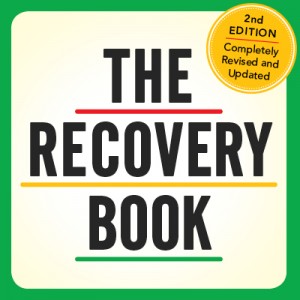
Heading back to school this fall as a newly sober person? Maybe you just finished treatment, or maybe you took a year off to build a really strong foundation for your recovery.
Wherever you are in your recovery, you might be nervous about heading back to school. Totally understandable. Maybe you’re worried you’ll be the only person not partying. You might fear you won’t have any fun. You might be afraid you’ll be tempted to use again, being surrounded by lots of partying students.
The good news is, these days there are many high school and college students in recovery. You are not the only one. Far from it.
With some preparation you can have a school year filled with academic achievements, a great social life, and no relapse. Below, a dozen ideas to help you succeed:
1. Get involved in a recovery program. Recovery programs help build self-esteem, self-respect, and empowerment. Find the local AA or NA meetings (see Find a Meeting) before you get to campus. Once you arrive at school, head straight for the student health center to ask about local recovery programs. If you can’t find any local meetings, check out InTheRooms.com.
2. Find a professional counselor before you need one. While you’re at the student health center, ask about counseling services. Maybe meet with a counselor a few times to establish a relationship, so you’ll have someone to turn to if you need help down the road. Find out if there are crisis counseling services that you can call on if you urgently need help.
3. Look for a campus recovery center. Many schools now have them. These programs range from casual meeting rooms and social activities for students in recovery to in-depth programs that provide intensive support. Some schools have an entire dorm set aside for those in recovery. See the Student Recovery Resources list below.
Also check out the University of Colorado’s Collegiate Recovery Center, the Georgia Southern Center for Addiction Recovery and Recovery Campus magazine for some examples of what’s out there. (Read about how a campus recovery program helped Frank stay sober on campus.)
> Get the first 3 chapters of The Recovery Book free at Amazon.<
4. Build a new social life with the people you meet in your recovery program or the campus recovery center. There are many other students who’ve been through the turmoil you’ve been through and who are now sober. You can have good times with them. They are the same kind of people you used to hang out with, but now none of you need alcohol or drugs to have a good time. They are enjoying sober tailgaters, alcohol-free sections at football games, sober ski trips and more. Rather than sitting at home, reach out to them and make plans for sober outings. Be sure to look for a local chapter of Young People in Recovery.
5. Find other new friends. There are many students at your school who, while they might not be in recovery, don’t rely on alcohol or drugs to have fun—kids who enjoy sports, who like to dance, listen to music, watch movies, and yes, have parties. Read more about how you can enjoy parties and other social events sober in Going to a Party? 7 Tips for Staying Sober and 37 Ideas to Help You Stay Sober During the Holidays.
6. Stay away from your old crowd. The people you used to drink or do drugs with should be off limits, at least for now. This will probably be easier than you think, because once they know you are sober and plan to stay that way, they are likely to take a walk. You might not be able to avoid them entirely, and others might offer you alcohol or drugs. Be ready to deal with peer pressure; see our tips in Back to School & Sober: Resisting Peer Pressure.
7. Change your phone number. It will be easier to avoid the party friends if they can’t text or call you. An easy way to do that is to swap phones with your mom or dad. Trust us, Mom will find it easier than you to ignore the party invites. If you can’t get a new phone or a new number, be sure to delete all the numbers of the people you want to avoid. Don’t make it easy to fall back into your old habits. If they persist in contacting you, block their texts and calls.
8. Clean up your online life. Take some time to clean up the image you send out to the world. You want to attract the kind of friends who are not binge drinkers or drug users. And don’t forget that someday you will be looking for a job—and most employers will check you out online. Don’t mess up your chances for a great career before you even get started. Unfriend those hard-partying friends. More on how to do this in How to Clean Up Your Online Reputation.
9. Take good care of yourself. Shower regularly; keep your hair clean; brush and floss your teeth. Pay attention to what you eat, avoiding junk food and soda packed with sugar. Get plenty of sleep. Keep up your recovery program, and remember your TAMERS.
10. Get into fitness. Exercise is a great way to get a healthy high. Try a team sport like downhill or cross-country skiing, tennis, or swimming. If team sports don’t excite you, try hiking, running, snowboarding, dancing or weight training. They can all make you feel better, occupy your time constructively, and start you on the road to a lifetime of fitness. Join a club or a team at your school to find others with the same interests. Look for a sober sports group like Phoenix Multisport.
11. Find some new music. You might have always listened to particular types of music when you were drinking and using drugs. Listening to those types now could be a cue that triggers a relapse. If you find that escaping into a familiar beat triggers old using feelings or weakens your enthusiasm for recovery, turn it off and keep it off. If you really want to keep listening to a certain type of music, play it only occasionally, or do it in conjunction with recovery activities, such as reading recovery literature, or meditating. Your brain can reassociate the music with recovery, with enough repetition and listening in a positive environment. Try some new music, too. Ask friends to suggest artists you might like, or entire playlists. Explore some new artists by playing around with custom stations at sites like iHeartRadio and Pandora.
12. Think about your goals in life. Who do you want to be? What do you want out of life? What do you want to contribute to society? You may not know exactly what you want, but you can start exploring and figuring it out now. You can find some dreams to start working toward. Sober, you are more likely to be able to clarify what these goals are, figure out how you can achieve them, and then progress toward them one step at a time.
Student Recovery Resources
Association of Recovery in Higher Education
Association of Recovery Schools
Other Resources for Teens and Young Adults
My Recovery | Frank: Staying Sober on Campus


Pingback: Back to School & Sober: How to Resist Peer Pressure |
These are really great suggestions for those who are entering into a new environment following treatment and recovery from an addiction to alcohol or drugs. Living intentionally focused on lasting recovery is key.